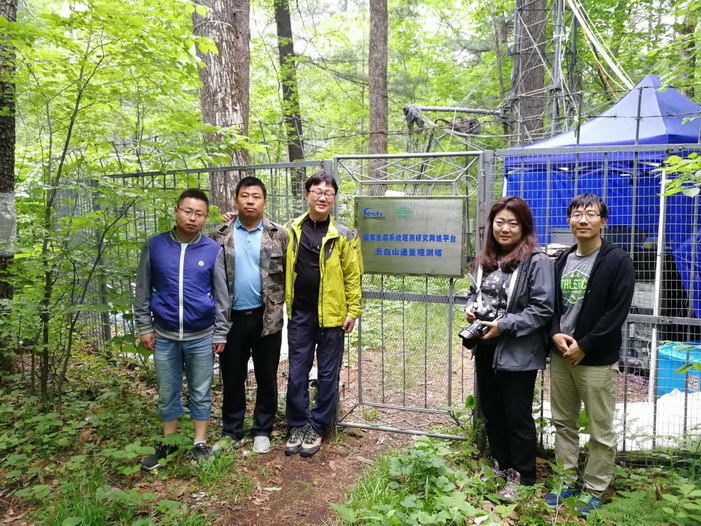Invited by the Qingyuan Forest Ecosystem Research Station (hereafter referred to as Qingyuan Station) and the Secondary Forest Research Group, Dr. Gyeoghak Lee and Dr. Go Eun Park, the scientists of the National Institute of Forest Science in South Korea (NIFoS), visited the Institute of Applied Ecology of the Chinese Academy of Sciences (IAE) from June 4th to 8th, 2018.
From June 5th to June 7th, Dr. Lee and Dr. Park visited the National Field Observation and Research Station in Changbai Mountain Forest Ecosystem of Jilin Province (hereinafter referred to as Changbai Mountain Station). DAI Guanhua, the assistant director of Changbai Mountain station led Dr. Lee and Dr. Park visiting along the vertical vegetation belts of Changbai Mountain. Dr. Lee and Dr. Park also visited the plant herbarium, the soil sample exhibition room, the meteorological observation field, the FLUX monitoring tower and the study plot of natural larch forest. Dai introduced the relevant information in detail. Dr. Lee and Dr. Park showed a strong interest in the regeneration of natural larch forest as well as the FLUX monitoring tower, and they conducted in-depth discussions with staff members of the Changbai Mountain Station.
On the afternoon of June 7th and the morning of June 8th, Dr. Lee and Dr. Park, accompanied by Dr. YU Lizhong, Prof. YAN Qiaoling, Prof. YANG Kai and Associate Prof. GAO Tian, visited Qingyuan Station. Prof. YAN Qiaoling introduced the history, the research areas, the study plots, and the main research outcomes of the Qingyuan Station. Dr. Park introduced the NIFoS via a video and gave a talk on ‘Climate Change Adaptation’. Dr. Lee and Dr. Park then visited the small watershed observation site, the meteorological observation field, the forest study plots, the warming experiment site, and LiDAR monitoring tower network and other facilities in the Station. Visitors and hosts had a heated discussion concerning the effects of climate change on the ecological processes of forest ecosystems, the relationship between forest structure and its ecological service functioning, the long-term ecological study of forest ecosystems, etc. Both sides reached a preliminary intention to strengthen scientific cooperation in the future.
